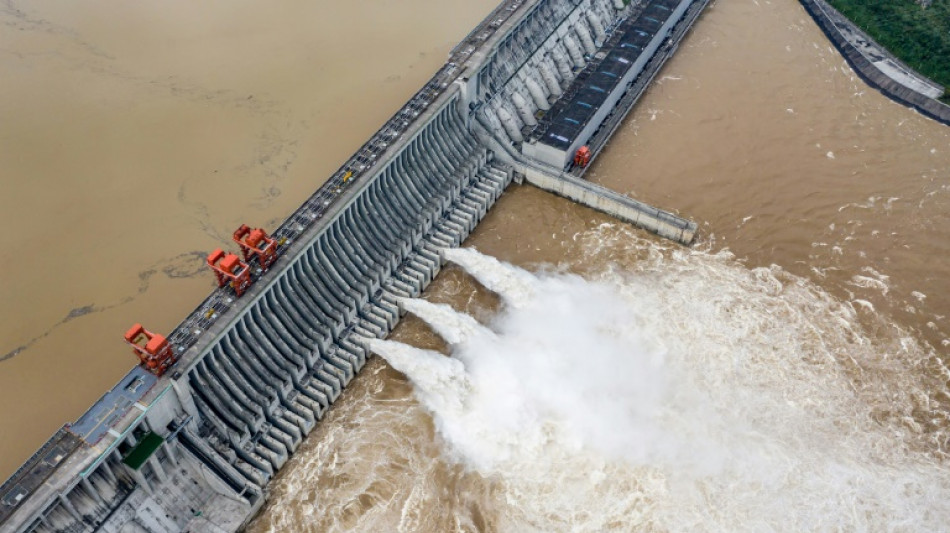
CMSD
-0.0800

Dry conditions, particularly in China, caused a "historic" global drop in hydropower generation in the first half of 2023, a new analysis shows, highlighting the effects of climate change.
The research by renewable energy think tank Ember argues the drop is a "warning shot that hydro output could negatively affect the speed of the electricity transition".
The group said global hydropower generation fell 8.5 percent in the year to June, more than any full-year decline over the last two decades.
Three-quarters of that decline was the result of falls in China, which baked through record temperatures earlier this year.
Between winter 2022 and spring 2023, most areas of southwest China experienced significantly less precipitation and higher temperatures than in a normal year, according to Beijing's ministry of emergency management.
The fall in hydropower output meant global carbon emissions rose very slightly in the first half of 2023, despite a 12-percent increase in solar and wind power worldwide.
Lower growth in electricity demand helped keep the rise in emissions smaller than it might otherwise have been, Ember said in the report released Thursday.
China, however, saw its emissions rise nearly eight percent as it compensated for the loss of hydropower.
But while the extreme heat and drought conditions that caused this year's decline may have been driven by climate change, the think tank warned it remains hard to calculate future effects.
The consequences of "climate change on hydro potential are geographically varied", the group noted.
"Changes in rainfall patterns and intensity as well as increased evaporation will affect hydro output both positively and negatively depending on the region."
Some parts of central Africa, India, central Asia and northern high latitudes could see their potential to generate hydropower increase.
But in southern Europe, the southern United States and elsewhere, it is likely to weaken.
The chief of this year's COP climate meeting has called for a global tripling of renewable energy capacity by 2030.
And the International Energy Agency last month projected fossil fuel demand will peak by 2030.
But wind and solar generation grew more slowly in the first half of this year than in the same period last year, reflecting the fragility of gains in the sector.
"While it is encouraging to see the remarkable growth of wind and solar energy, we can't ignore the stark reality of adverse hydro conditions intensified by climate change," said Malgorzata Wiatros-Motyka, Ember's senior electricity analyst.
"The world is teetering at the peak of power sector emissions, and we now need to unleash the momentum for a rapid decline in fossil fuels by securing a global agreement to triple renewables capacity this decade."
E.Soukup--TPP